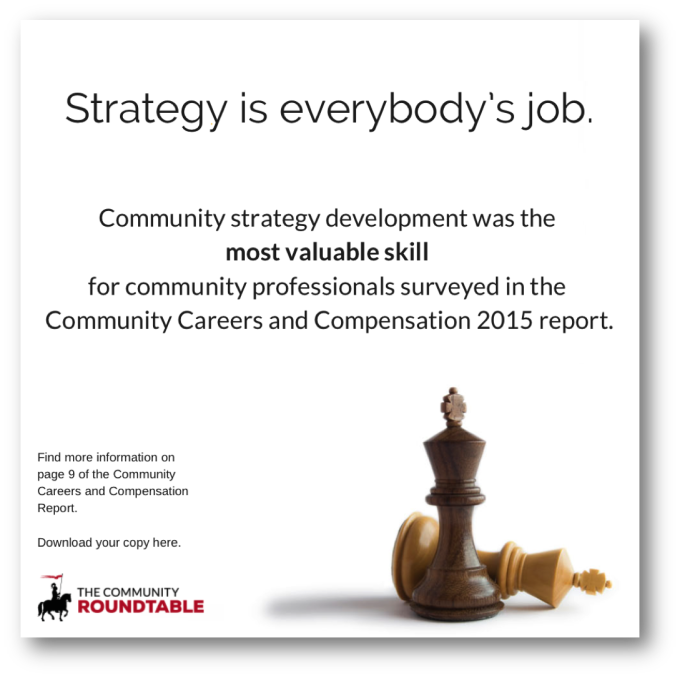By Ted McEnroe, Head of Research, The Community Roundtable
Want to send your boss through the roof in under five seconds? Tell them these four words.
“It’s not my job.”
Want to send your top talent out the door as fast as their resume can carry them? That might take five.
“It’s not up to you.”
Legend has it that in the old hierarchical world of the workplace, bosses decided, workers implemented and the world spun quietly on its axis. Whether you believe that or not, in 2015-2016, it doesn’t hold true in community. Data from the Community Careers and Compensation 2015 report shows that from the lowest rung to the highest on the community career ladder, community professionals value their skills in setting and implementing community strategy.
Our survey found that community strategy development was the most valued skill in every community-related role we examined in the survey. And not by a small margin.
This has powerful implications for leaders of community programs. Directors of community should expect that their community specialists, managers and strategists want and need to have a say in defining and implementing community strategy. Hiring managers need to seek out people they think can couple that desire for strategic input with the skills to develop, implement and review. For community managers, the shared power comes with shared responsibility. New hires should expect that they will be held accountable for their participation in community strategy development.
Hierarchical chains of command still exist in workplaces, but they are shrinking in number. And in communities, having your entire team on board with your strategy is a critical precursor to community success.

Want to learn more about the salaries, roles and career opportunities for community management professionals? The Community Careers and Compensation 2015 summary report is available now – and to get the full report, take the CCC 2015 survey at https://the.cr/ccc2015survey or join TheCR Network, our practitioners’ network for community professionals.
